Indonesia - Module 2 of ASEAN CSR Fellowship (2017)
For Module 2 of the ASEAN CSR Fellowship, ACN partnered with Indonesia Business Links (IBL) to deliver the 5-day programme. In Indonesia, Fellows re-visited key themes within CSR which they explored in Singapore – including business and human rights (BHR), business integrity and environmental sustainability – but in the different context of Indonesia. Compared to Singapore, a cosmopolitan island-state driven mainly by trade and commerce, Indonesia is Southeast Asia’s largest and most populous country, home to the largest Muslim population in the world, an archipelago with more than 18,000 islands abundant with natural resources. As such, the learning objective for the Fellows was to build an understanding of CSR as it applies across ASEAN, comparing the different experiences in the 4 countries visited.
Highlights in Indonesia:
- Tour of the ASEAN Secretariat
- Site Visit to a Waste Bank in Mampang, Jakarta, as an example of a multi-stakeholder initiative helmed by Unilever Foundation
- Sharing by Danone, APRIL-RAPP on their strategies to ensure business practices are in line with environmental protection
- Discussion with the Indonesia Chamber of Commerce (KADIN) and Telkomtelstra (one of Indonesia's largest telcos) on corporate governance
- A supply chain mapping exercise covering the garment, F&B, FMCG and other industries
- Workshop on how to forge and manage strategic partnerships for better outcomes
Day 1 (3 Apr 2017) - Visit to ASEAN Secretariat
The ASEAN CSR Fellowship kicked off in Jakarta with an overview of the status of responsible business practices in Indonesia presented by Indonesia Business Links (IBL), ACN's local partner for the 5-day programme. Over the 5 days, the key topics and learning points included: business and human rights, environmental protection, youth empowerment and unemployment, and multi-stakeholder approaches for development.
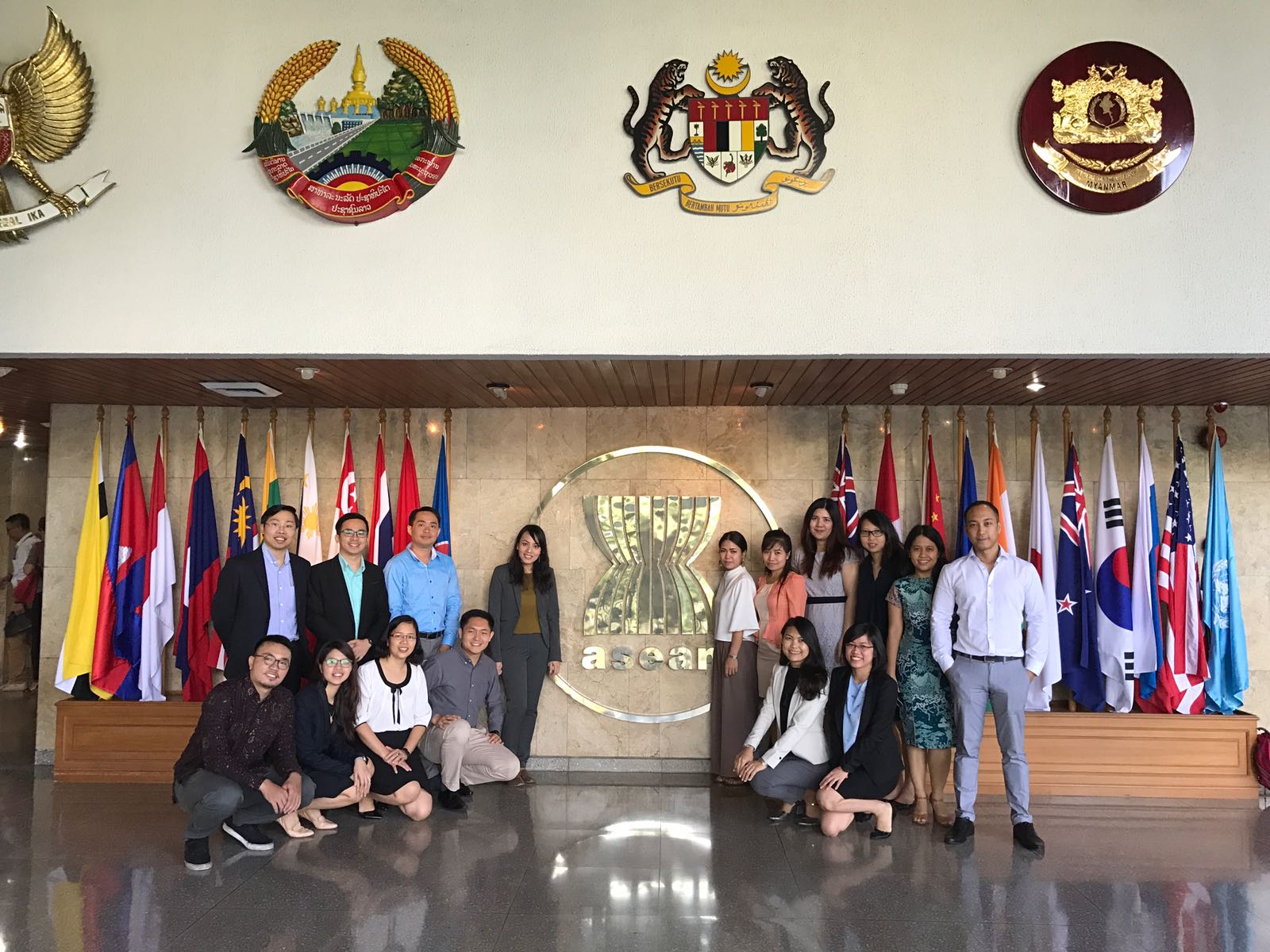
The first stop on Day 1 was the ASEAN Secretariat - where Fellows were introduced to the history of ASEAN, its objectives and role in the global order. Mr. Lee Yoong Yoong, Director of the Community Affairs Directorate shared compelling statistics presenting ASEAN as a formidable bloc, with a projected population of 700 million by 2030. He also presented one of ASEAN’s most important guiding documents – the ASEAN 2025: Forging Ahead Blueprint – which marks ASEAN’s goals to be more cohesive, resilient and self-sufficient.
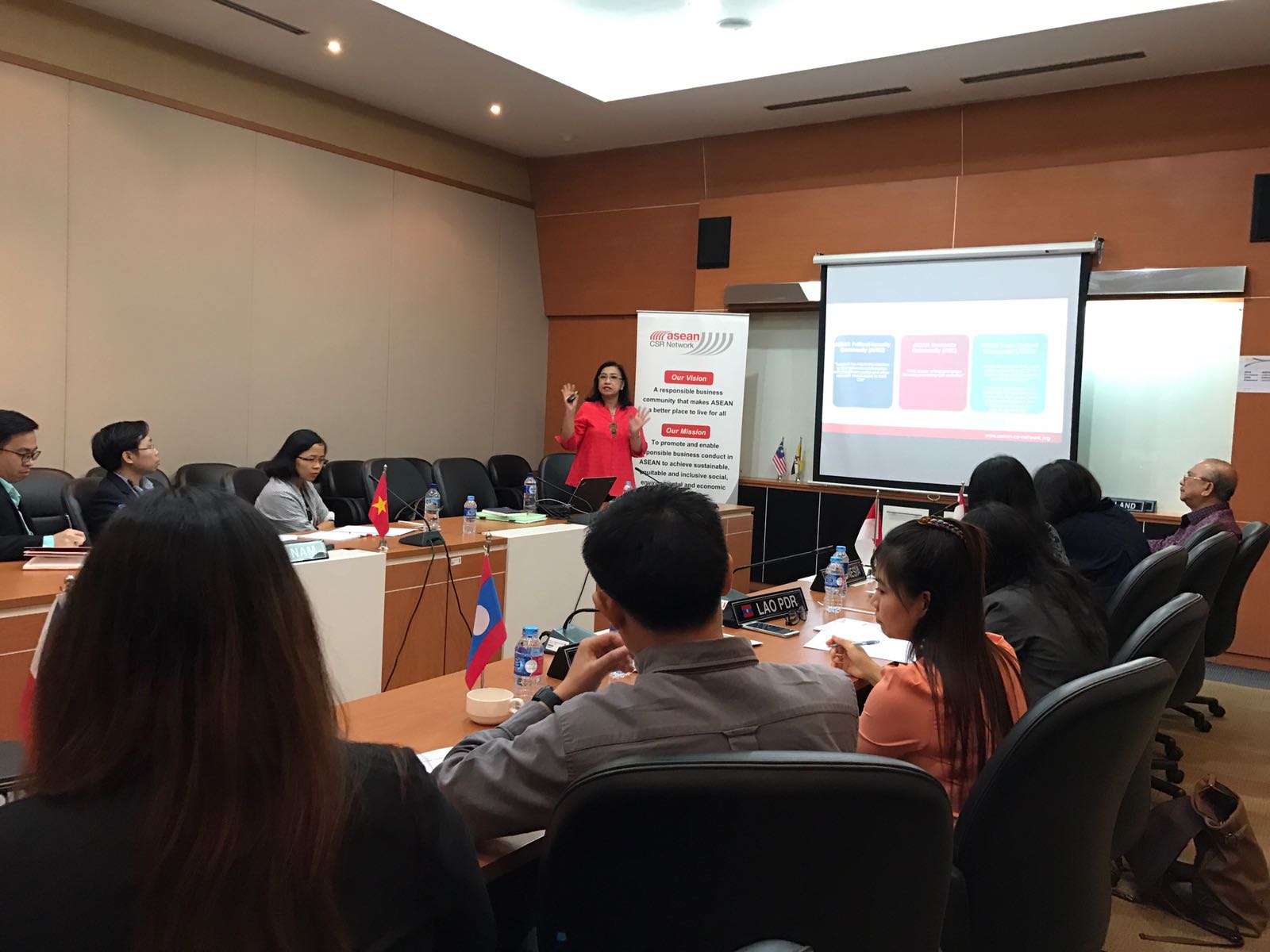
At the ASEAN Secretariat, Ms. Yanti Triwadiantini, Chair of ACN and Sustainability Advisor of IBL, also gave an overview of ASEAN's take on the responsible business agenda. She explained that CSR features in all three pillars of the ASEAN 2025 Blueprint, as ASEAN recognises the importance of involving the private sector to achieve sustainable development in the region. She also shared ASEAN’s key milestones in CSR, starting with the establishment of AICHR in 2009, the first Baseline Study on Business & Human Rights (prepared with the support of ACN) in 2014, and more recently, the ASEAN Guidelines for CSR on Labour and the draft ASEAN Regional Strategy on CSR and Human Rights – both developed in 2016. Ms. Yanti also shared the key highlights of the Baseline Study, and had an in-depth discussion with the Fellows on the commonalities and differences in the practice of CSR between ASEAN countries.
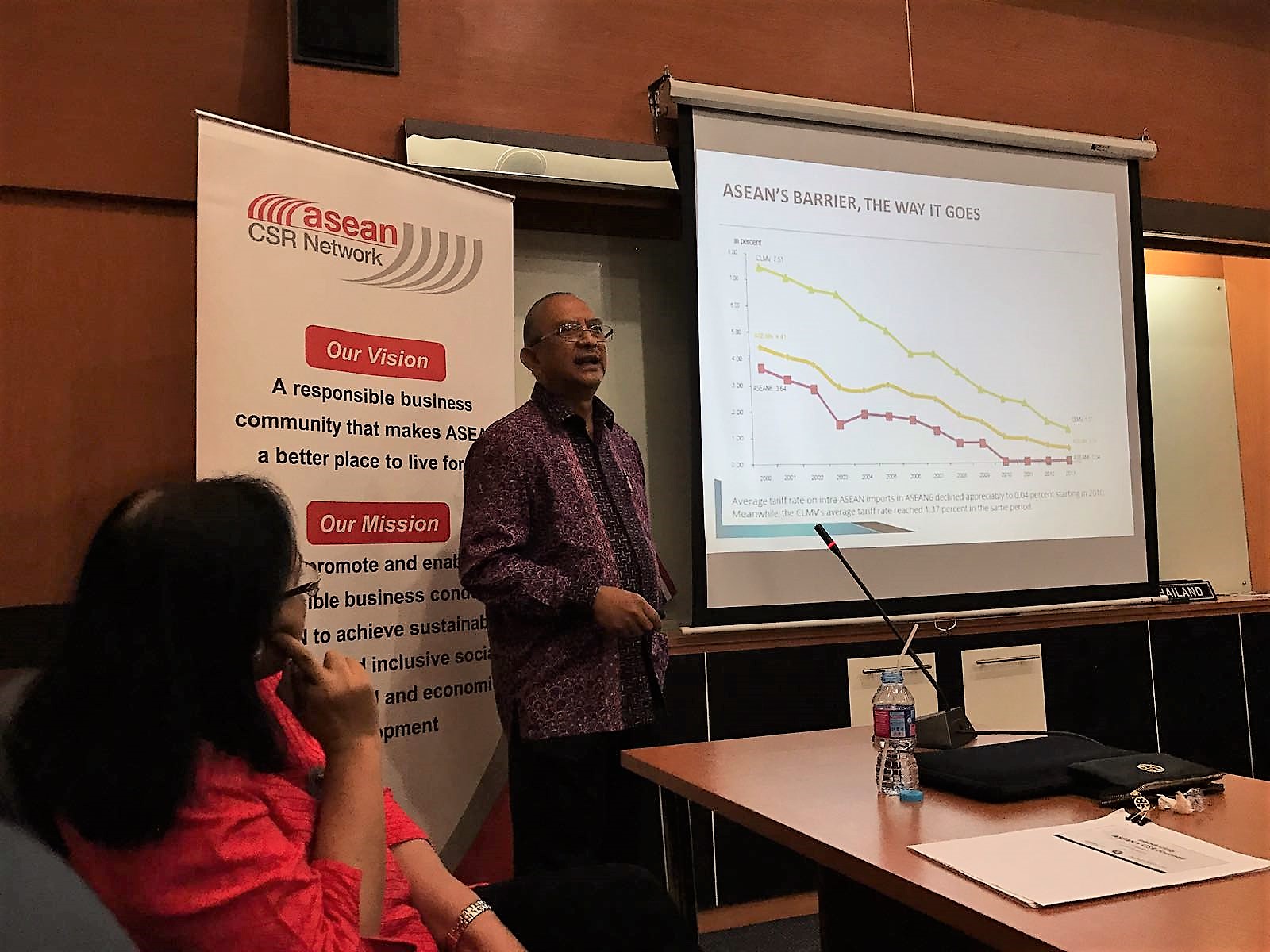
Next, Mr. Heru Prasetyo, Chairman of IBL, introduced the role of Indonesia Business Links (IBL) in progressing the CSR agenda in Indonesia. He marked the history of IBL’s birth after the economic collapse of 1998, when there was high unemployment and exit of many companies from Indonesia. The highlight of Mr. Heru’s discussion was an observation on the evolution of CSR in ASEAN. First, when capitalism was first introduced, the only social obligation of companies was to pay taxes and create jobs. Later, this expanded to include philanthropy, then later strategic giving (e.g. cause-related marketing), corporate community investment and finally, the emergence of ‘sustainable businesses’. Governments and businesses in each AMS may have a varying understanding of CSR along this evolution of CSR.
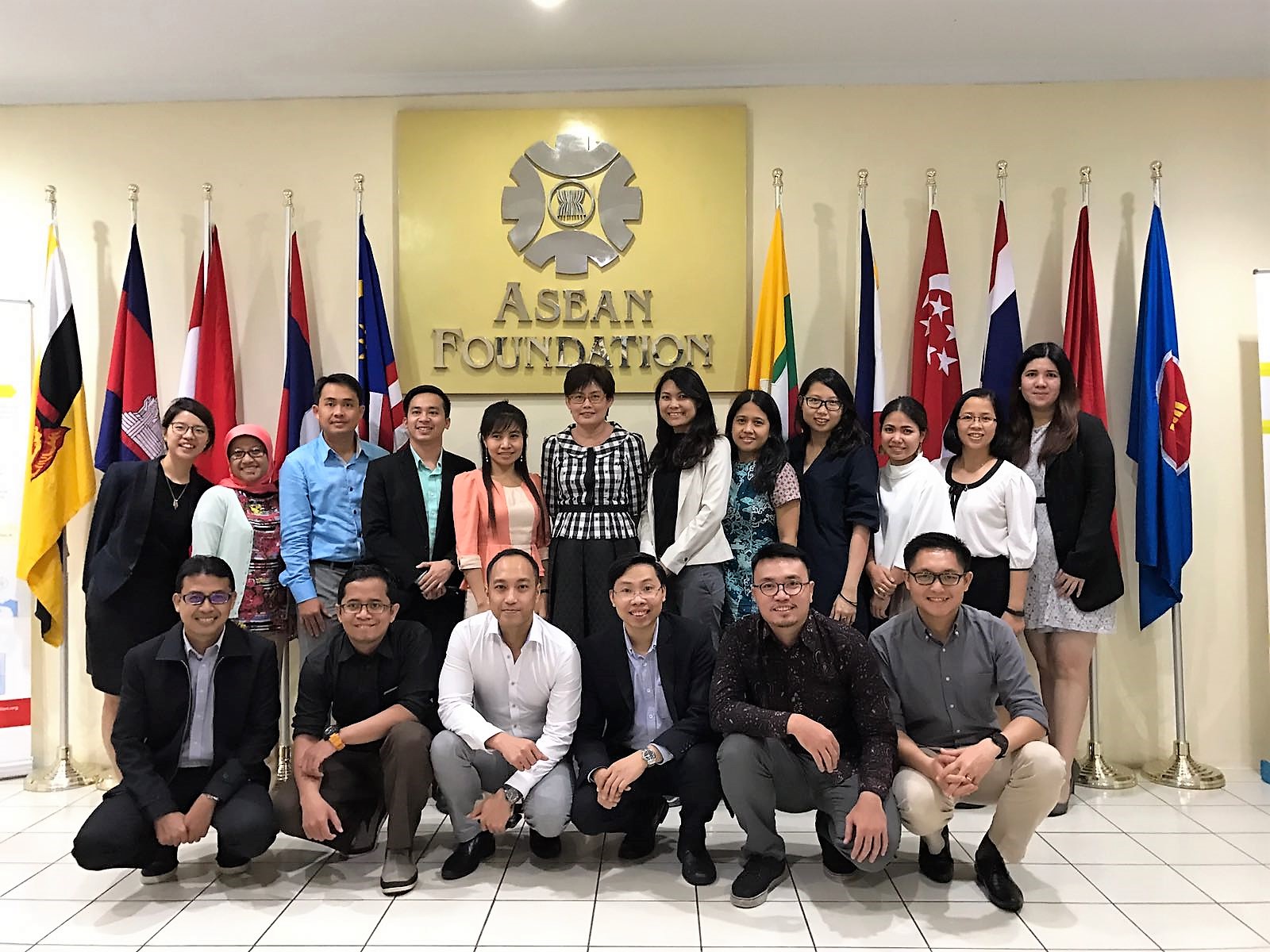
After the ASEAN Secretariat, Fellows paid a visit to the ASEAN Foundation, established in 1997 to promote awareness, identity, interaction and development of the people of ASEAN. The visit was hosted by Ms. Elaine Tan, Executive Director of ASEF and one of ACN’s Trustees. Ms. Elaine introduced the variety of programmes by the Foundation, from education (e.g. the ASEAN Internship Programme) to arts (e.g. APEX-ASEAN Puppetry Exchange) and – more in line with CSR – support for farmers (e.g. ASEAN Farmers’ Organisations Support Programme) and building a network for social entrepreneurs (e.g. ASEAN Conference on Social Entrepreneurship). During the Q+A, it was evident that the Fellows were impressed with the collaborative nature of the Foundation’s programmes, which typically involved private companies as strategic partners.
Day 2 (4 Apr 2017) - Business & Human Rights, Business Integrity in Indonesia
Day 2 focused on business and human rights, and collective action for business integrity in Indonesia. The day featured speakers from from Vale Indonesia, Oxfam Indonesia, Telkomtelstra and Indonesia Chamber of Commerece and Industry (KADIN).

The first panel discussion included Mr. Basrie Kamba from Vale Indonesia. Vale Indonesia is a subsidiary of Vale, a global mining company headquartered in Brazil, operating open-pit nickel mines in Sulawesi since 1968 and currently produces 5% of the world’s supply of nickel. Mr. Basrie shared that the mining industry has always been contentious, with many challenges in the area of BHR including land acquisition. He shared that the profile of business and human rights issues has continued to rise, with the Indonesian NHRI – Komnasham – receiving an increasing number of complaints. Fellows had many questions during the Q+A, particularly about how Vale conducts EIAs, community engagement and how they manage their communications.
Oxfam Indonesia was also invited to share their views and Mr. Budo Kuncoro, Country Director, presented a more academic approach to the topic of business and human rights, putting forward statistics on human rights complaints in Indonesia. He highlighted that the police receives the highest number of complaints, followed by companies – and half of these complaints were in the plantation sector. He reminded Fellows about the vastness of these operations, with one plantation occupying a land mass equivalent to 7 Singapores. Such large-scale operations can have massive impacts on communities – for the better or worse. Other issues faced by Indonesia include a widening inequality gap, freedom of association, discrimination against women, labour trafficking and contract violation, particularly in high-risk industries such as fisheries, garment, palm oil and extractive industries.

The second panel discussion focused on Business Integrity. Mr. Ernest Alto, VP of Risk and Compliance at Telkomtelstra, one of Indonesia’s largest telecommunications operators, shared about the importance of the tone from the top. He also shared an interesting case study involving collective action with other companies. Dr. Suryani Sidik F. Motik, Head of CSR from the Indonesia Chamber of Commerce and Industry (KADIN), also highlighted many new regulations and institutions set up after the Suharto era to combat corruption. Both panelists agreed that it often takes two to tango, and that the prerogative lies with companies to resist external pressures on corrupt practices and continue to act with integrity.
Day 3 (5 Apr 2017) - Business & Environment in Indonesia
The focus of Day 3 was on business and the environment, a fresh topic not yet fully addressed during the Fellowship. Fellows heard from a former Indonesian Minister about the Sustainable Development Goals (SDGs). This was followed by a sharing of the best practices of two MNCs – Danone and Unilever – as well as a regional company – APRIL-RAPP – on how they manage the transboundary haze issue in the contentious pulp and paper industry. The day ended with a visit to Unilever Foundation’s waste bank project in Mampang, Jakarta.
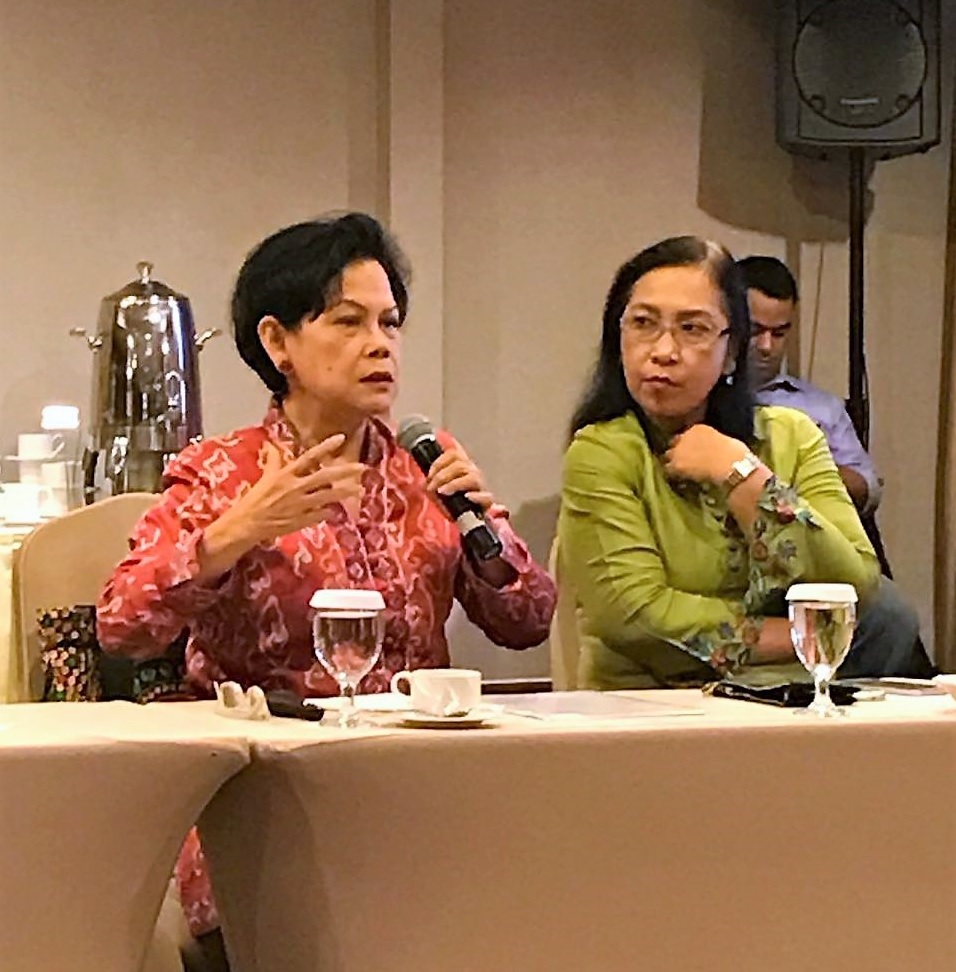
Ms. Erna Witoelar is a former Minister of Human Settlements and currently a National Advisor to SDGs, spending a large part of her career working on sustainable development in Indonesia. She shared that there have been major progressive steps taken by the environment ministry to set regulations and take bold action. However, as there were still problems with regards to enforcement, she sounded the call for the private sector to take the lead, likening government bodies to a tank which is slow to take off, compared to non-state actors as bicycles which are nimble and efficient.
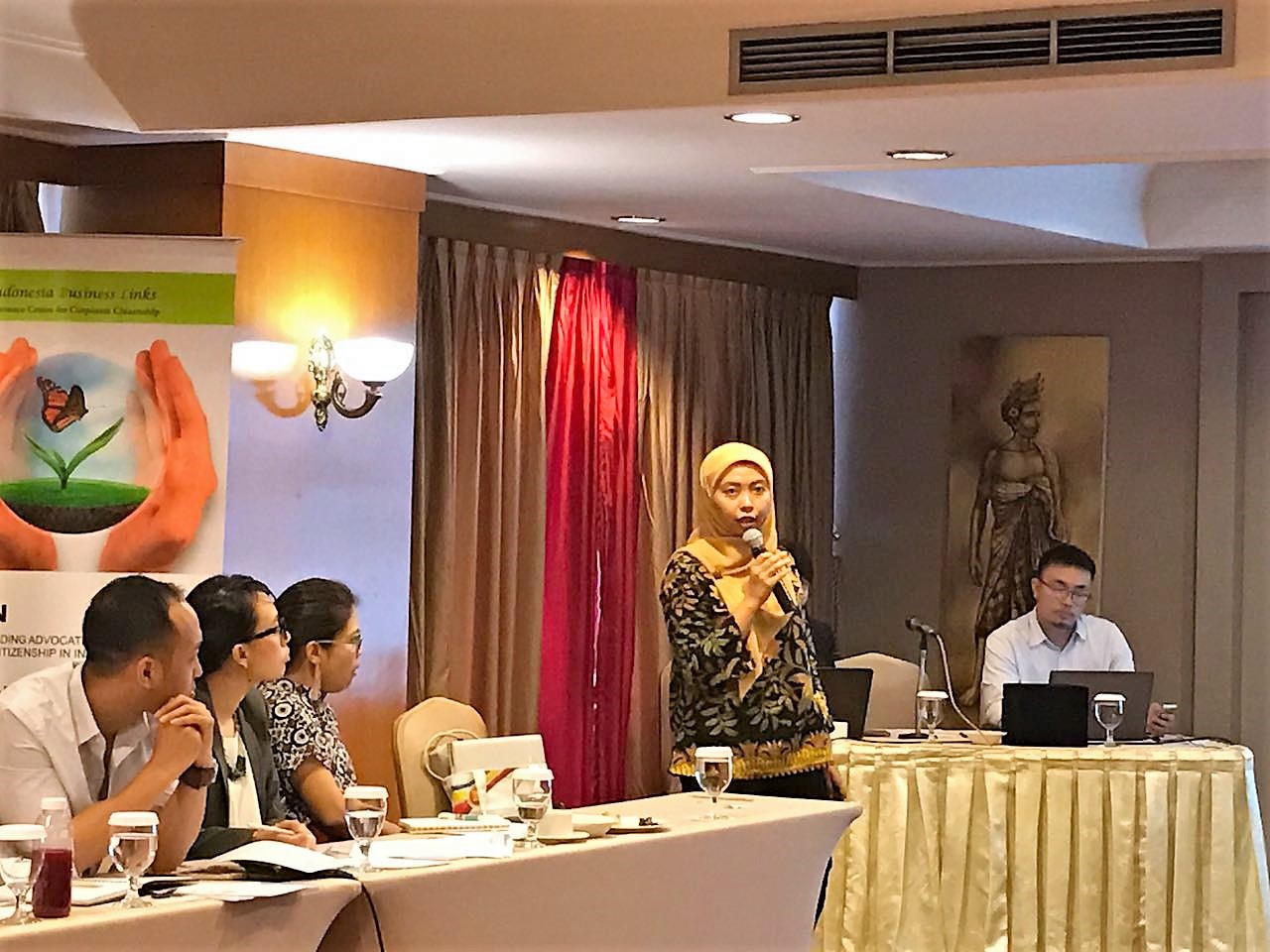
Ms. Ratih Anggraeni from Danone Indonesia gave a comprehensive summary of Danone’s key and efforts in sustainability. This included detailed strategies on managing water cycles, waste management, promoting sustainable agriculture and forging a circular economy in their business operations. Danone is a well-recognised leader in the field of CSR and Ms. Ratih’s presentation proved that their brand equity through CSR was well-founded.
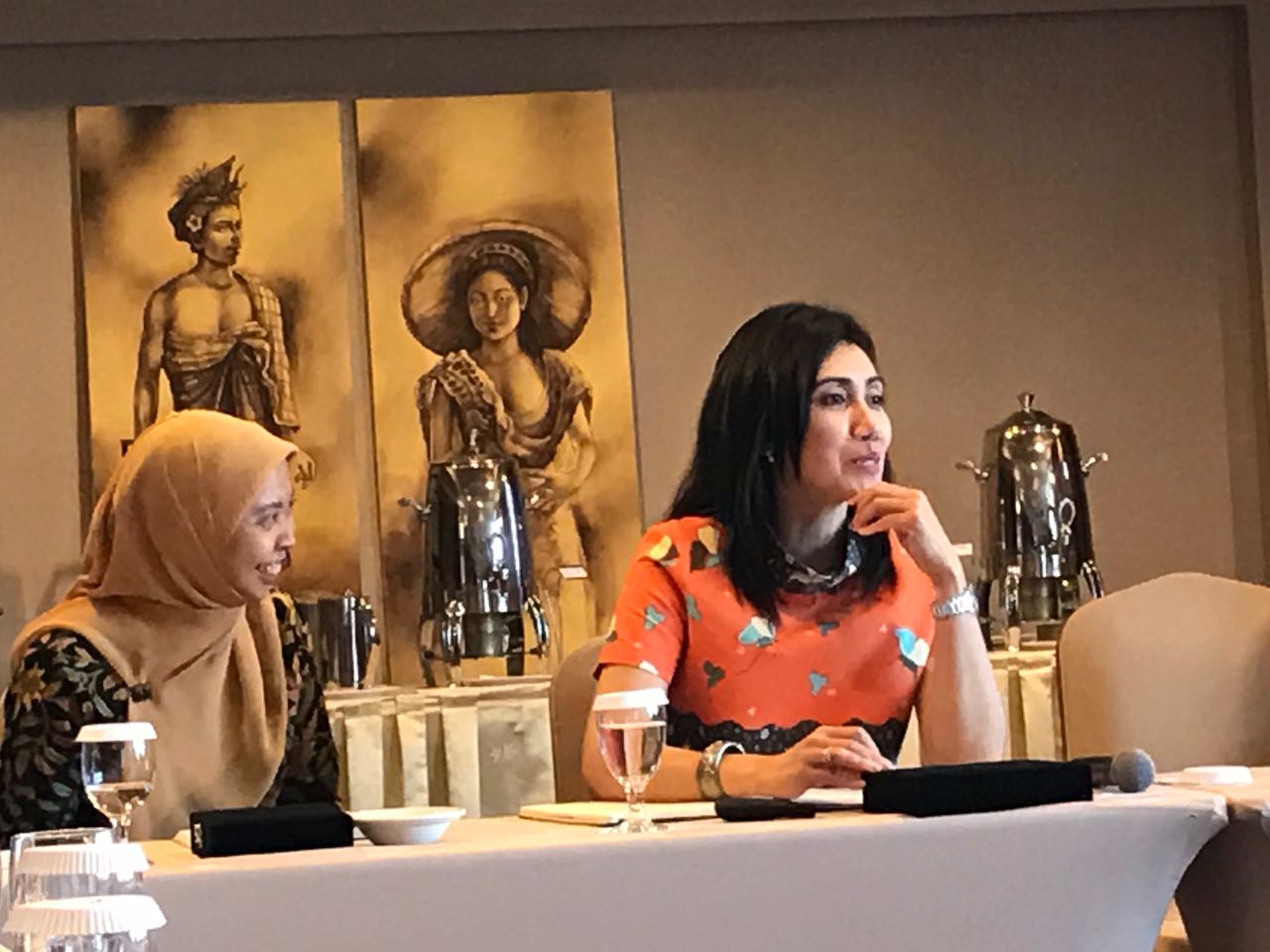

The last item on the agenda for Day 3 was a visit to a waste bank in Mampang, Jakarta, supported by the Unilever Indonesia Foundation. In the recent years, various waste banks have been set up to increase the rate of recycling and are now scattered across Jakarta. Members of the community collect and deposit waste at the waste bank, earning credit which they can withdraw as vouchers or cash. In this way, the community also benefits from better financial literacy. To incentivise the use of the waste bank, members are allowed to borrow money from the bank and receive discounts for perks such as a trip together at the end of the year.
While such community projects are not uncommon and not unique to Indonesia, the objective of the site visit was to help Fellows understand how the private sector can work closely with the government, community and civil society to implement a successful community project. A key learning outcome to understand first-hand how multi-stakeholders can leverage on each other’s strengths while navigating through their differences when working together on multi-stakeholder projects such as this.
The Vice Mayor of South Jakarta, Drs. Irmansyah, graced the site visit in Mampang. Ms. Djuraidah Mahmud spoke, representing the views of the community as the Head of Community of Waste Bank Mekar Sari, sharing that the community did not initially see the benefits of this initiative, starting only with 12 members with one waste bank in 2014. However, by 2017, they had expanded to 200 members and developed 7 waste banks. Lastly, Mr. Muchtazar Muchtazar from the Unilever Indonesia Foundation shared about Unilever’s involvement in waste banks in Indonesia, as well as their general strategy on sustainability. Part of Unilever’s Sustainable Living Plan includes creating impact through community engagement – and supporting this waste bank was one such initiative. For all projects implemented, Unilever maintains a 360-degree engagement model, involving NGOs, the government, media and the private sector to allocate resources. This ensures that all stakeholders are engaged in the implementation of their programmes. For this particular programme, they formed partnerships with the local government, local community and an NGO called Rumah Palawi Foundation.
The local media was also present and the visit was featured in the news.
Day 4 (6 Apr 2017) - CSR & Youth Empowerment in Indonesia
Day 4 started with a 2-hour supply chain mapping exercise, where Fellows split into 4 groups to explore the supply chain of 4 different industries. These industries were selected to reflect the work experience of some of the Fellows, as well as industries which faced large risks in terms of CSR.
1) Fast-Moving Consumer Goods (FMCG) Industry
2) Garment Industry
3) F&B
4) Construction / Property Development
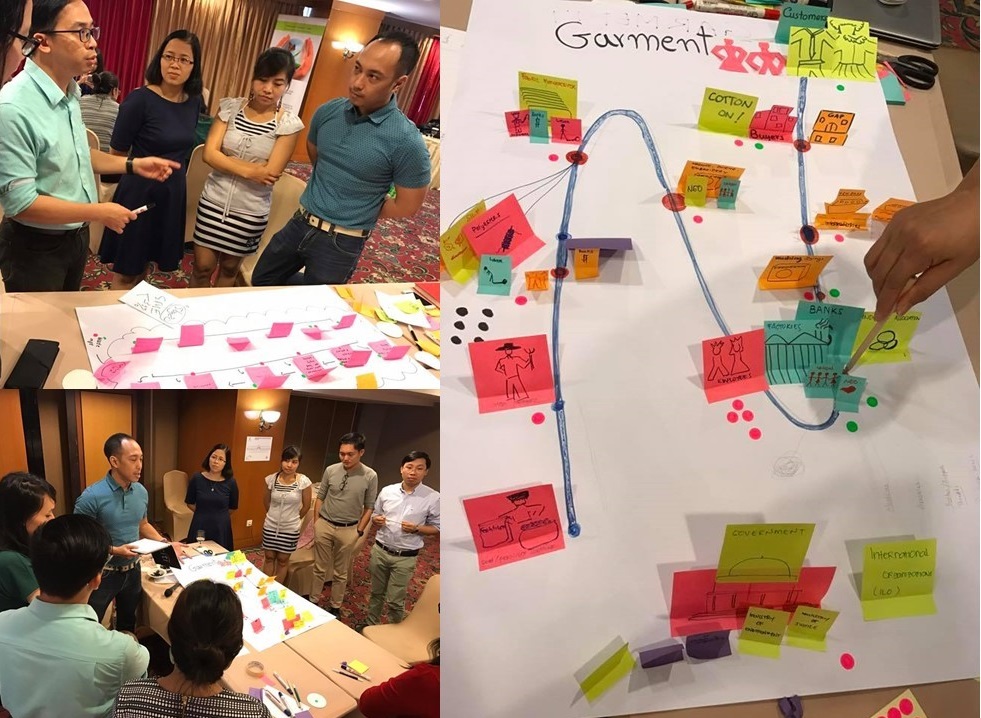

The focus then turned to CSR and youth empowerment – or more importantly, the private sector playing a role to find opportunities for the youth to gain employment. 48% of the Indonesia population is economically active, and of that rate, 22.6% are unemployed. Especially in regions outside Jakarta, few jobs are available for high school graduates and they are lower-skilled. Youth empowerment is also one of IBL’s key focuses, in recognition of this problem. The afternoon’s sharing consisted of 2 speakers from Accenture and IBL.
Mr. Fuad Lalean, Managing Director of Accenture shared that youth empowerment is one of Accenture’s most important focuses for CSR, recognising that the top challenges for youth people include a poor ability to present themselves in the job market – for example, writing good CVs and conducting themselves well in an interview – as well as lacking in entrepreneurial skills. He argued that corporates should view these youths as their potential talent pool, and advocated for the corporate role of corporates in youth empowerment. He also shared Accenture’s strategy to impact 3 million youth globally by building up their competencies, engaging them in the business operations and advocating for them to have more opportunities.
Ms. Harmini Simanungkalit, Youth Manager from IBL also shared about IBL’s approach to increase the capacity of youth through the strengthening of entrepreneurship skills and employability. Since 2009, IBL has been engaged in projects for youth empowerment with Accenture as one of the donors. Over the last decade or so, they have worked with 1,500 youths through 4 programmes, and are continually improving the methodology and strategy. The major impacts are an improvement in the attitude and mentality of beneficiaries, the creation of 42 new life skill trainers, as well as income generation for the families.
Day 5 (7 Apr 2017) - Managing Effective Partnership for Development
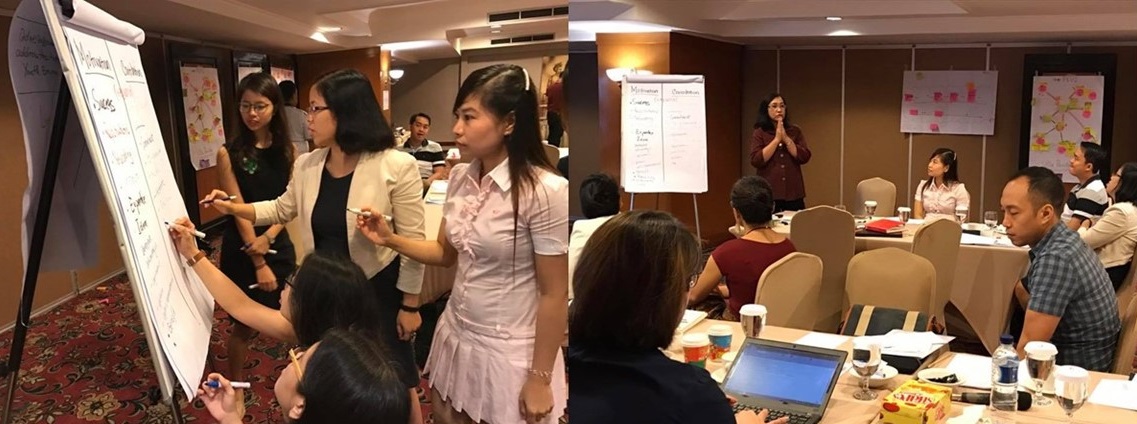
The final day featured a half-day workshop by Ms. Yanti Triwadiantini, Chair of ASEAN CSR Network and Sustainability Advisor of IBL. She encouraged Fellows to consider strategic partnerships for their Capstone Projects, and shared that partnerships have also been identified as the way forward, whether for businesses, CSOs or governments, to implement successful programmes. However, partnerships requires tact and skill to strike a fine balance between the goals of partners, and the morning session tackled those issues head on.
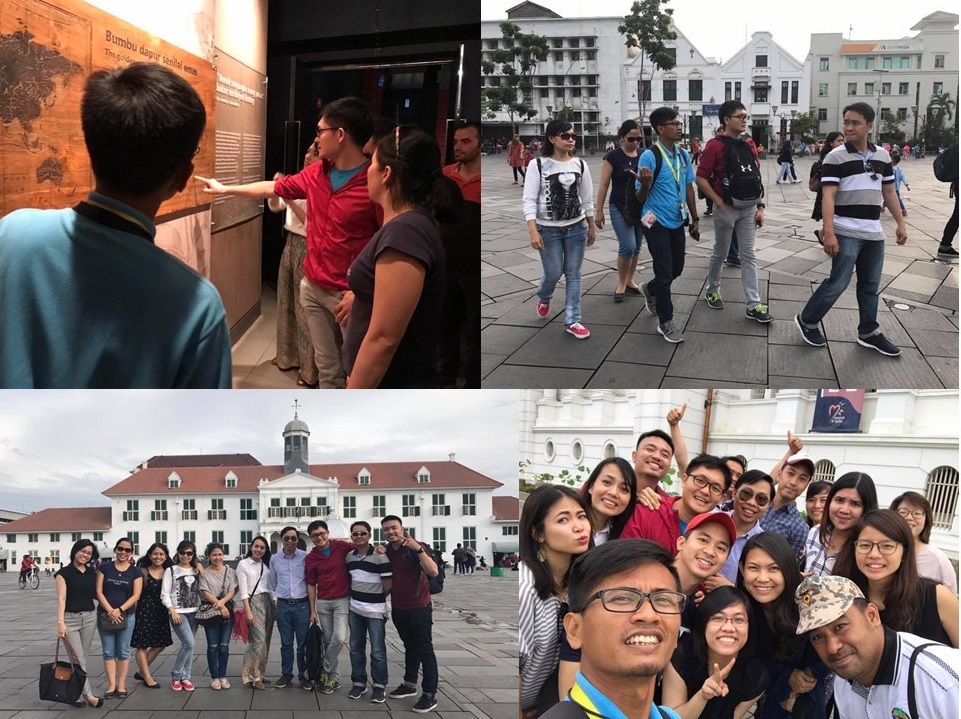
In the afternoon, Fellows took a break and went on a half-day tour of Jakarta’s best sites to better understand Indonesia's history and development. Starting with a visit to the Bank Museum, they continued on to a walking tour of Kota Tua (or “Old Town”), a visit to the beach at Ancol before heading to Bandar Djakarta for a seafood dinner.
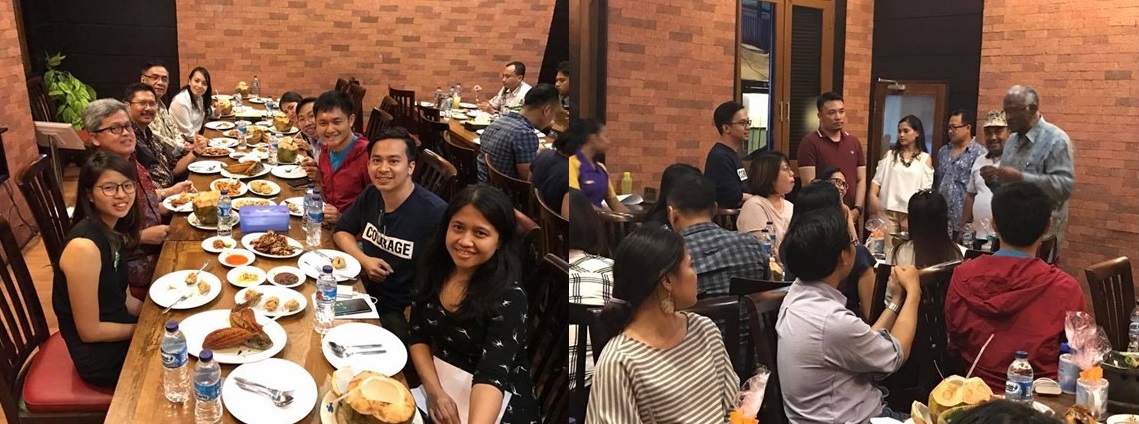
The closing dinner was hosted by Mr. Rafendi Djamin, former representative of Indonesia to AICHR and one of the Advisers to ACN. Mr. Rafendi has had a long career in activism, civil society and academia, advocating for human rights in Indonesia and ASEAN. Over dinner, Fellows had the opportunity to tap on his rich experiences and stories collected during his long journey.
